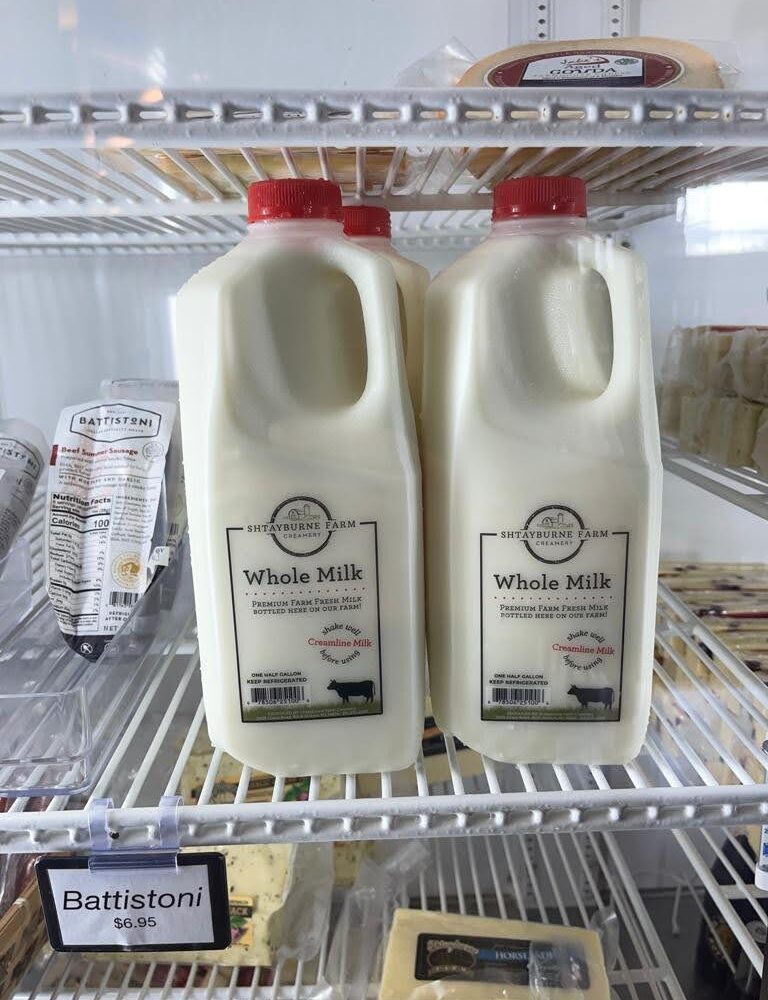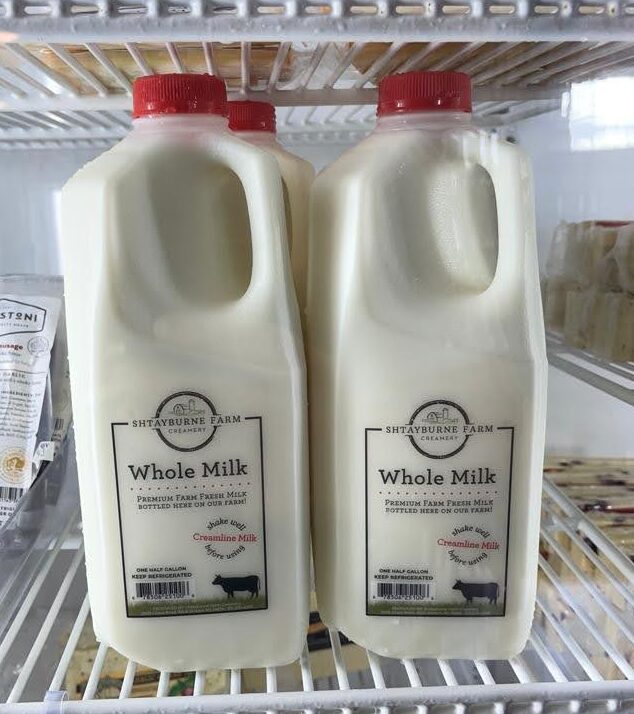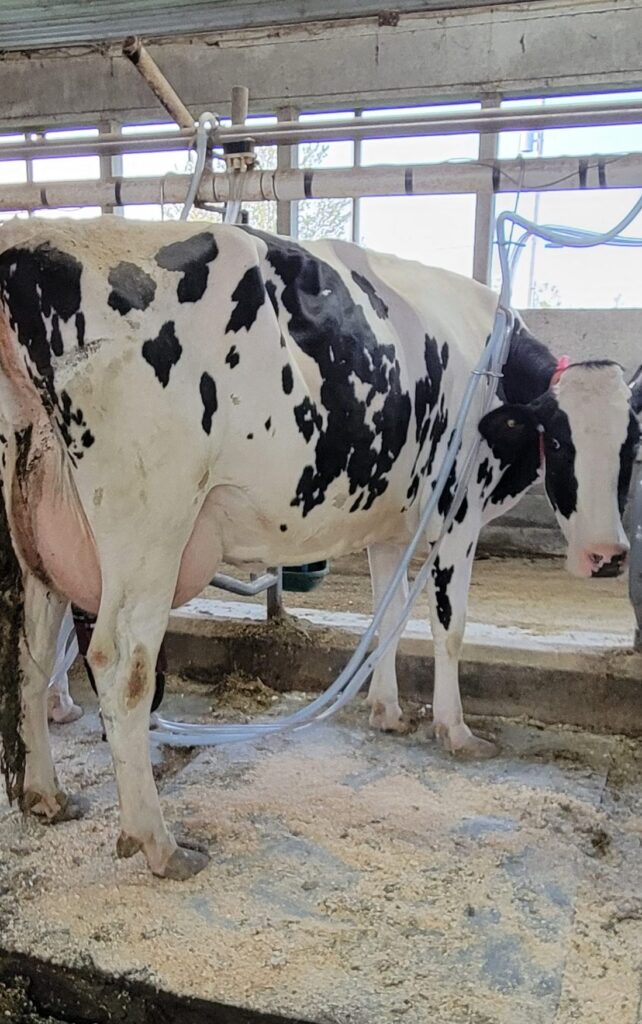How we gently process our milk
We are so excited to be offering you our milk, fresh from the farm!
I’m rather biased I know but I think it’s the best. When we go away and need to buy from the grocery store it just doesn’t taste the same. One of the main reasons for the taste difference is processing. High heat pasteurization and homogenization destroys the fresh flavor of milk as well as many nutrients that are naturally in milk.
Here on our farm we process our milk with the minimum required to meet regulations and make sure our customers are safe.
Pretty much any large processor uses one of three methods to pasteurize milk.
- High Temp/Short Time method. The milk is heated to 161 degrees and is held there for at least 15 seconds.
- Ultra Pasteurized. The milk is heated to to 280 degrees for a minimum of two seconds.
- Ultra High Temperature. The milk is heated to temperatures between 275 and 300 degrees using commercially sterile equipment to produce a shelf stable product that does not require refrigeration until it has been opened.
The main reason these methods are used is for speed and efficiency. Big companies do not want to “waste time” on the slower low heat vat pasteurizing method. They also want to have a really long shelf life because often the milk is being shipped in from other states. The only place you will find the gentler method used is in your local milk market, normally done by smaller producers. They sell their milk to locals, so the milk goes from the cow to your table in a much shorter time and you do not need the incredibly long shelf life.
At our farm we use the low heat vat pasteurizing method.
We gently heat the milk to 145 degrees, hold it there for 30 minutes and then cool it back down.
- This method kills pathogens in the milk without destroying other beneficial vitamins in the milk.
- The lower temperature preserves the fabulous, fresh flavor of milk.
- Very high heat damages proteins in the milk
Our milk tastes better and fresher. It has not been subjected to such high intense temperatures. Most milk you will find at the grocery store has synthetic vitamins added to compensate for what has been damaged in the pasteurizing process. On it’s own the milk has very little nutritional value because it has been heated so harshly.
Why we don’t Homogenize our milk
Our milk is not homogenized. When milk is left in it’s natural state cream will rise to the top. The homogenization process is done so that the cream does not separate from the milk. The milk is forced through a small opening at high pressure. This splits the fat cells and the smaller particles reattach to the proteins in the milk and stay that way. Then the cream will not separate.
The problem with this process is that it also affects how your body digests the milk. If you are Lactose Intolerant you may want to give Non homogenized milk a try. When the fat particles are left alone your body naturally treats the fats and the proteins differently. The fat particles attach to nutrients and your body absorbs them.
When the milk is homogenized the fat particles are split up. They are so small they pass through without being digested and go through the blood stream. For those who are lactose intolerant, that means your immune system goes into attack mode fighting off two forms of undigested proteins, such as casein and whey.
To attack, antibodies are released, causing certain chemicals like histamine to be released into the bloodstream. this causes many problems, such as shortness of breath, stomach aches, bloating, headaches, and more.
Fat particles in the blood stream can also cause hardening in the arteries and therefore cause heart trouble.
Is milk good for you?
If you have heard the narrative that cow’s milk is not good for you, in a way it’s true. But the problem is not in the milk itself. The problem is in how the milk is processed before it reaches you.
Our milk is left in it’s natural state as much as possible . We pasteurize it to make sure it is safe for you with the gentlest methods possible. Homogenize is not necessary and ruins the nutritional value of the milk so we don’t do it. As a result our milk tastes fresh and delicious and has all the nutrients still intact for your body to absorb.
Our milk contains complete proteins!
Contrary to homogenized milk that is hard for your body to digest, non homogenized milk contains all the essential amino acids, creating a complete protein to nourish your body the way it needs. One cup contains 8 grams of protein. Protein is the building block for muscle, hair, nails, and skin.
Our milk will give you healthy bones!
Non homogenized milk also contains many nutrients and vitamins that are good for proper bone growth.
- calcium
- phosphorus
- vitamin D
- magnesium
- vitamin k
Anytime food is heavily processed nutrients are lost and synthetic ones added back in just aren’t very good for you.
One of the great things about non-homogenized milk is that you don’t have to mix the cream back in. Let it sit for a few hours and you can take the cream off for you coffee! If you do want the cream mixed in just give the jug a good shake and you have delicious whole milk ready to pour over your milk.
On our farm the milk goes straight from the cow to you! It is not cooked to death and left to sit in trucks and warehouses for weeks or even months. Come visit us and see the cows when you buy your milk!



